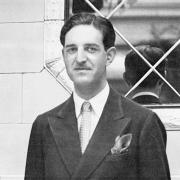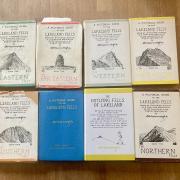The time was 7.40 p.m., the date 15 February 1942. The light was fading fast, the Allied forces were encircled, and the bombardment was relentless.
Charged with defending the western approach road to the city at Pasir Panjang, soldiers of the Loyals’ A Company spotted a group of Japanese on the ridge overlooking their HQ at Gillman barracks. A machine-gun was commandeered, and a volley unleashed at the enemy, who quickly dispersed. These were almost certainly the last shots to be fired in the Allied defence of Singapore.
An hour later, a car puttered up from the barracks, headlights blazing. Greeted with cries of ‘Put your bloody lights out!’ the driver, Capt. Webber, told them that was no longer necessary, since at 6.15 p.m. a cease-fire had been agreed, to come into effect at 8.30. The General Officer Commanding the British Commonwealth forces in Malaya, Lt-General Arthur Percival, had met his opposite number, Lt-General Tomoyuki Yamashita, at the Ford Motor Factory on Bukit Timah road and agreed to surrender unconditionally the following morning.
Discarding their weapons, the Lancashire Loyals quietly withdrew to their quarters, where they ‘composed themselves as best they could for the silent ordeal of the night, numbed and galled by the bitterness of enforced surrender’.
Among the 80,000 British and Commonwealth prisoners who surrendered to the Japanese at the fall of Singapore in February 1942 were around 600 officers and men of the 2nd Battalion of the Loyal North Lancashire Regiment, most of whom would spend the great majority of the next three and a half years in Korea’s Number One Prisoner-of War Camp at Seoul (renamed Keijo following the 1910 Japanese annexation).
Before inspecting their quarters, the 460 POWs who arrived at Keijo on 25 September 1942 were lined up on the exercise yard and formally welcomed by the camp commander, Col. Yuzuru Noguchi, a 57-year-old military careerist with over thirty years of service in the Imperial Army. A short man even by Japanese standards, with a toothbrush moustache and a receding hairline, Noguchi liked to stand on a podium at some distance from his ‘guests’ while addressing them (in good but imperfect English):
“Some of you will hold hostile feeling against us in your hearts; that can never be permission. We will punish you if you act against our regulations, for instance disobedience, resistance and escape, even attempt to do so, are understood as manifestation of hostility. You should reflect on yourselves. Prejudice against labour and grumbling over food, clothing and housing are strictly prohibited. Closing my instruction, I advise you all to find interest and anxiety in your forthcoming daily life by acting according to the Imperial military discipline. You have not come here as honoured guests. You must endure.”
The death rate among Japan’s Allied prisoners – almost all fit young men at the time of their capture – was a grim twenty-seven per cent (compared to four per cent in German prisoner-of-war camps). Many of the survivors also died relatively young, their health undermined by malnutrition, medical negligence and casual brutality not infrequently culminating in torture.
The brave Lancashire Royals, however, showed resilience to the appalling regime, determination to survive, and huge creativity in doing so.
Among the many ways the prisoners sought to keep their spirits up were the staging of surprisingly sophisticated shows, complete with Gloria d’Earie, aka Bombadier Arthur Butler. Before the war, his ‘delightful tenor voice’ could be heard on Radio Singapore every Sunday; he was in constant demand for birthday parties and had even performed for the Sultan of Johore. A fellow soldier remembered that Butler had once spent an afternoon and evening in the bar at Raffles Hotel dressed as Gloria without being outed. According to Wade, he was ‘slim and gracious, with small features and ardent brown eyes.’ Another soldier described his female alter ego as ‘exquisite – makes all “her” own dresses and wears them beautifully. Every look and gesture completely feminine.’ Butler spent the full three years at Keijo, where the chief impresario of camp concerts, Capt. Jack McNaughton of the Loyals, who had been a West End actor before the war, always chose him as his leading ‘lady’.
Arguably the greatest contribution which most of the officers made to the wellbeing of the camp as a whole was their vegetable garden. They first raised this idea soon after their arrival at Keijo, and Noguchi was more than willing to facilitate it: free vegetables would save him money, and in return he promised them more fish or meat. By mid-July, 2,000 kilos of tomatoes and sacks full of potatoes, cabbages, leeks, carrots, maize, spinach, daikon, cucumber, lettuce, onions, aubergines, pumpkins and melons were being carried back to the camp cookhouse on an almost daily basis to enrich and vitaminize the soups and stews of both officers and other ranks
And perhaps the most sophisticated of the prisoners’ morale-boosting endeavours was the regular publication of a magazine called Nor Iron Bars, with its satirical portrayals of camp life. Fourteen issues were produced over the time of their incarceration, totalling 516 pages. Great care was taken to conceal them, and despite snooping guards and frequent searches the Japanese never discovered the magazine. Had they done so, severe punishment would certainly have followed. When the war ended, the magazines were smuggled out and brought back to Preston, where it was bound and is still displayed in the Lancashire Infantry Museum at Fulwood Barracks.
This is the previously untold story of the brave Lancastrians who endured over three years of incarceration, and author Chris Given-Wilson, whose father was one of the prisoners, writes with warmth and humour, to reveal both the best and the worst of human nature. This book should be read by everyone, but perhaps especially all proud Lancastrians.
You Must Endure: the Lancashire Loyals in Japanese Captivity, 1942–1945 by Chris Given-Wilson is published by Carnegie Palatine Books at £9.99. Readers can buy the book with free delivery direct from the publishers at www.carnegiepublishing.com, quoting code YMEX21



























